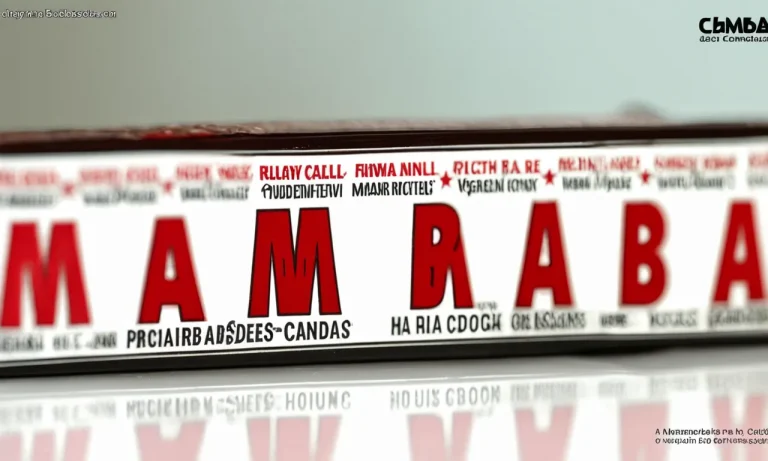Is Citric Acid Vegan? Examining The Common Food Additive
Citric acid is an extremely common food additive used in everything from sodas to frozen yogurt. But its sour tang can leave some vegans wondering – is citric acid derived from fruits, or does it come from hidden animal sources?
If you’re short on time, here’s the quick answer: Yes, citric acid is generally vegan. It’s normally produced commercially through fermenting carbohydrates without animal products.
What is Citric Acid?
Citric acid is a common food additive that is used for various purposes in the food and beverage industry. It is a natural compound that is found in citrus fruits such as lemons, limes, and oranges. Citric acid is known for its tangy and sour taste, which makes it a popular ingredient in many processed foods and drinks.
Definition and Uses
Citric acid is a weak organic acid that is classified as a natural preservative and flavor enhancer. It acts as an acidulant, which means it can help regulate the acidity or pH level of a food or beverage.
This is particularly important in the production of carbonated drinks, where citric acid is commonly used to add a tart flavor and balance the sweetness.
In addition to its role as an acidulant, citric acid also functions as a chelating agent, which means it can bind to and remove certain metals. This property makes it useful in various industrial processes, such as cleaning agents, cosmetics, and pharmaceuticals.
Natural vs. Commercial Production
While citric acid is naturally present in citrus fruits, the majority of the citric acid used in the food industry is not derived from fruit sources. Instead, it is typically produced through a fermentation process using a specific strain of mold called Aspergillus niger.
This commercial production method allows for a more cost-effective and consistent supply of citric acid.
It is worth noting that the citric acid produced through this fermentation process is considered vegan-friendly, as it does not involve the use of animal-derived ingredients. However, there are some concerns regarding the use of genetically modified organisms (GMOs) in the production of citric acid.
To ensure that the citric acid used in vegan products is GMO-free, it is important to look for products that are labeled as non-GMO or organic.
For those who prefer to consume citric acid from natural sources, there are also options available. Some companies produce citric acid from fruits like lemons and limes, which can provide a more natural and organic alternative.
Why Citric Acid is Usually Vegan
Citric acid is a common food additive that is widely used as a flavoring agent, preservative, and acidulant in various food and beverage products. It is commonly found in fruits such as lemons and limes, but the citric acid used in commercial products is typically produced through a fermentation process.
This fermentation process involves the use of carbohydrates, which are usually derived from plant-based sources. As a result, citric acid is generally considered to be vegan-friendly.
Made by Fermenting Carbohydrates
The production of citric acid involves the fermentation of carbohydrates, such as glucose or sucrose, by certain strains of mold or bacteria. These microorganisms convert the carbohydrates into citric acid through a series of metabolic reactions.
The most commonly used microorganism for citric acid production is Aspergillus niger, a fungus that naturally occurs in soil and decomposing plant matter.
During the fermentation process, the microorganisms break down the carbohydrates and produce citric acid as a metabolic byproduct. This means that the citric acid is not directly derived from animals or animal byproducts.
Instead, it is synthesized by microorganisms using plant-based carbohydrates as their energy source.
Non-Animal Methods Are Cheapest
In addition to being vegan-friendly, the production of citric acid through fermentation is also economically advantageous. Non-animal methods of citric acid production are generally cheaper and more efficient compared to alternative methods.
This is because the use of microorganisms and carbohydrates allows for a higher yield of citric acid with lower production costs.
The fermentation process can be carried out on a large scale, allowing for the production of citric acid in large quantities to meet the demands of the food industry. Moreover, the use of carbohydrates from plant-based sources is generally more cost-effective than using animal-derived substrates.
Therefore, from an economic standpoint, non-animal methods of citric acid production are preferred.
When Citric Acid May Not Be Vegan
Whey Fermentation
Citric acid is commonly produced through a process called fermentation, where microorganisms such as bacteria or fungi are used to convert sugars into citric acid. One of the sources of these microorganisms is whey, a byproduct of cheese production.
In some cases, whey derived from animal sources, such as cow’s milk, may be used in the fermentation process. This means that citric acid produced using whey fermentation may not be considered vegan-friendly.
It’s important to note that not all citric acid is produced using whey fermentation. In fact, the majority of citric acid used in the food industry is produced using other methods, which are typically vegan.
However, if you’re specifically looking for citric acid that is guaranteed to be vegan, it is advisable to opt for products that are explicitly labeled as such or contact the manufacturer for clarification.
Other Animal Derivatives
In addition to whey fermentation, citric acid can also be derived from other animal sources. For example, it is possible for citric acid to be extracted from the shells of crustaceans such as crabs or lobsters.
This method is less common and typically more expensive than other production methods, but it’s worth being aware of for those who are strictly following a vegan lifestyle.
When it comes to determining whether a product containing citric acid is vegan or not, it’s essential to check the label for any additional ingredients. Some food products may contain other animal-derived additives alongside citric acid, such as gelatin or honey.
By thoroughly reading the ingredient list or reaching out to the manufacturer, individuals can ensure that they are making informed choices aligned with their dietary preferences.
How to Ensure Citric Acid is Vegan
As a common food additive, citric acid can be found in a wide range of products, including beverages, snacks, and personal care items. For those following a vegan lifestyle, it is important to ensure that the citric acid used in these products is sourced and manufactured in a vegan-friendly manner.
Here are some tips on how to determine if citric acid is vegan:
Check Ingredient Lists
When shopping for products, always take the time to carefully read the ingredient lists. Look for products that explicitly state that the citric acid used is derived from plant-based sources. This information can often be found in parentheses next to the ingredient name.
For example, “citric acid (from lemons)” or “citric acid (from sugar cane)”. By choosing products with this clear labeling, you can be more confident that the citric acid is vegan-friendly.
Contact Manufacturers
If the ingredient list does not provide enough information, don’t hesitate to reach out to the manufacturers directly. Many companies have customer service representatives who can provide you with more detailed information about the sourcing and manufacturing process of their citric acid.
You can inquire about whether the citric acid is derived from plant-based sources or if any animal-derived substances are used in the production. This direct communication can help you make an informed decision about the vegan status of the citric acid in the product.
Look for Certifications
Another way to ensure that citric acid is vegan is to look for products that have been certified as vegan by reputable organizations. These certifications indicate that the product, including any additives like citric acid, has been thoroughly vetted and meets the strict criteria set by the certifying body.
The Vegan Society’s Vegan Trademark and the Certified Vegan logo from Vegan Action are two widely recognized certifications that you can look for on product packaging. By choosing products with these certifications, you can be confident that the citric acid used is vegan-friendly.
Remember, being vegan goes beyond just avoiding animal-derived ingredients in food. It extends to other aspects of our lives, including the products we use. By following these tips and being proactive in your choices, you can ensure that the citric acid you consume aligns with your vegan values.
The Bottom Line
However, it’s important to note that there may be rare cases where citric acid is derived from animal sources, such as when it is produced using molds grown on whey or other animal-derived substances.
Therefore, if you follow a strict vegan lifestyle, it is advisable to check the specific source of citric acid in a product or contact the manufacturer for clarification.
References:
Conclusion
In conclusion, commercially produced citric acid is generally vegan, but there are some exceptions. With careful label reading and further inquiries, vegans can feel confident about including this commonplace ingredient in their diets.







